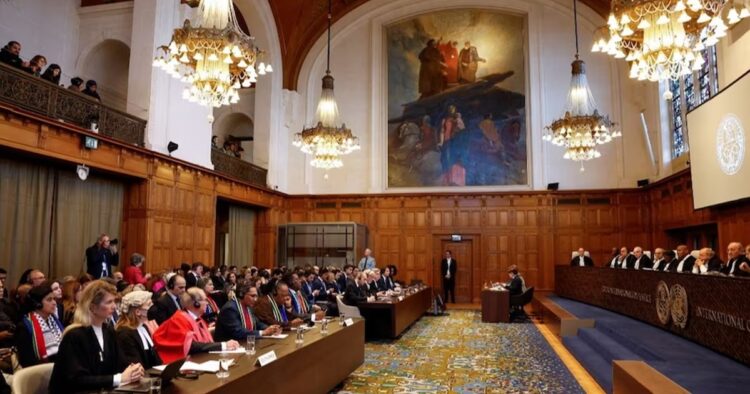The United Nations’ top court issued a ruling on Friday instructing Israel to take all necessary measures to prevent death, destruction, and acts of genocide in Gaza. However, the court did not go as far as ordering an immediate end to the military offensive in the Palestinian enclave. The decision comes in response to a genocide case brought by South Africa, putting Israel’s wartime conduct under scrutiny.
The court’s orders are seen as a significant rebuke of Israel’s actions during the nearly four-month-long offensive, which has resulted in over 26,000 Palestinian casualties and extensive damage in Gaza. The ruling highlighted the human tragedy unfolding in the region and expressed deep concern about the loss of life and suffering.
Israeli Prime Minister Benjamin Netanyahu criticized the court’s willingness to discuss genocide charges, calling it a “mark of shame.” Despite the ruling, Netanyahu vowed to press ahead with the war. The timing of the decision, on the eve of International Holocaust Remembrance Day, added to its impact.
The court’s rulings are legally binding, and UN Secretary-General Antonio Guterres emphasized that he trusts Israel to comply with the orders. The court called on Hamas to release hostages still in captivity, while former Israeli Defense Minister Benny Gantz urged the international community to make Israel follow the court’s directives.
An Israeli judge supported some of the orders, including humanitarian aid and preventing inflammatory speech, in the hope of decreasing tensions. However, compliance with these measures remains uncertain. Netanyahu stated that Israel would continue to defend itself, and the court’s decision does not explicitly demand a ceasefire.
The court ruled that Israel must prevent genocide, refrain from harming Palestinians, urgently provide aid to Gaza, and punish any incitement to genocide. Israel is required to submit a report on steps taken within a month. The decision is an interim ruling, and further consideration of South Africa’s genocide allegations against Israel may take years.
In response, commentators in Israel expressed relief that the court did not order an immediate ceasefire, avoiding a collision with a top UN body. Palestinians and their supporters viewed the decision as a step toward holding Israel accountable, while the U.S. reiterated its position that Israel must minimize harm to civilians and increase humanitarian aid.
The South African government welcomed the ruling, stating that Israel’s actions in Gaza are plausibly genocidal and challenging Israel’s claim of compliance with international law. Israel, typically critical of international tribunals, sent a high-level legal team to address the case.
The conflict in Gaza has raised concerns about the potential for more deaths from disease and malnutrition, with a significant portion of the population facing starvation. Despite tensions, some analysts believe that the court’s decision is not as severe as feared by Israel and may not fundamentally alter the military’s conduct in the ongoing conflict.

















Comments